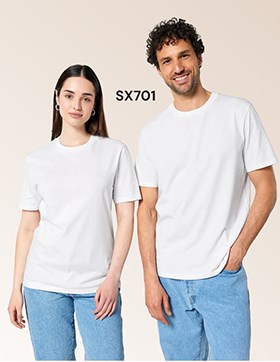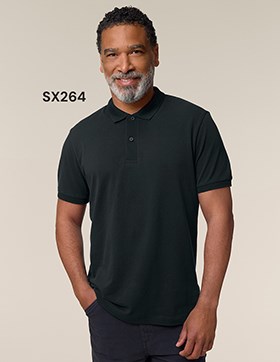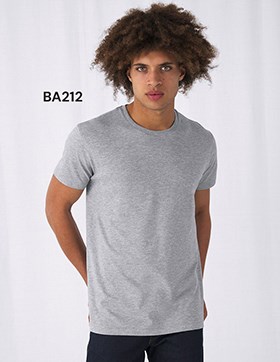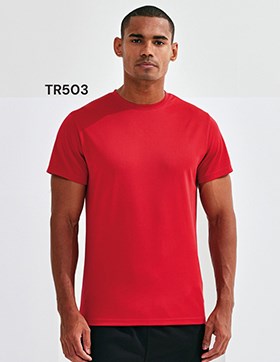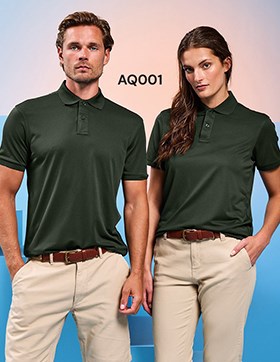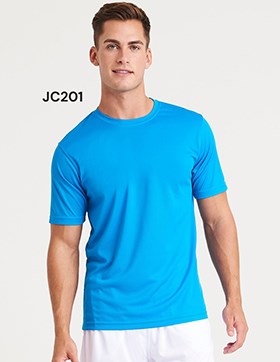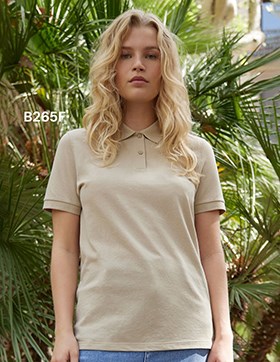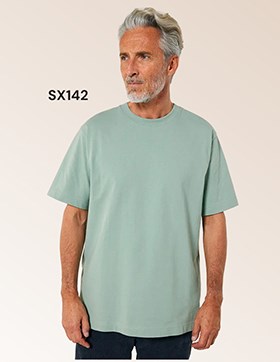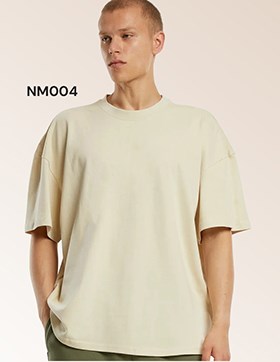
More than a t-Shirt: the story behind 2025’s sustainable staples
In 2025, the humble t-shirt is no longer just a wardrobe essential – it’s a statement. A symbol of progress. A quiet revolution at the heart of apparel sustainability.
Across the UK and beyond, fashion, lifestyle and workwear are undergoing a foundational shift. While high fashion often grabs the headlines, it’s the everyday basics – unbranded t-shirts and polos – that are driving real change. Once chosen for fit, cut and finish, these staples now offer added value for your business and customers, unlocking new commercial potential.
The sustainable apparel market has grown exponentially in recent years, fuelled by consumer demand for transparency, ethical sourcing and environmental responsibility. In 2025, this market is forecast to surpass £10 billion in the UK alone, with basics accounting for a significant share. Businesses are responding by rethinking products and supply chains, investing in better materials and embracing circularity. From regenerative cotton farms to repurposed plastic waste, the story behind each t-shirt or polo is becoming as important as the product itself.
The commercial edge
Sustainability isn’t just good for the planet – it’s good for business. Consumers are willing to pay more for products that align with responsible values. For businesses, sustainable t-shirts and polos offer a competitive edge in a crowded market. You’re not just selling a t-shirt; you’re selling a story, a mission, a movement.
Retail is also seeing the benefits. Sustainable collections are outperforming conventional lines in terms of customer loyalty, repeat purchases and brand perception. In a world where authenticity matters, sustainability is the new standard.
A new era of responsible clothing
Across the UK and beyond, consumers are looking beyond the label. The rise of conscious consumerism and global legislation setting new baselines is the driving force for change[1] , so people are asking: who made this; what’s it made of; and what footprint does it leave behind? In response, the blank apparel market is evolving faster than ever to meet the demands.
Until recently, opting for an organic or recycled t-shirt or polo was considered a niche choice. Today, it’s smart business. Over 80% of UK consumers say they are willing to pay more for sustainably-made products, especially when quality is matched by ethics[2]. For resellers and decorators, this shift is opening new doors to opportunities to meet growing demand for garments with less environmental impact.
The UK sustainable fashion market is forecast to hit USD 1.76 billion by 2033, growing at a 23.6% CAGR from 2025 onwards[3]. That’s not just growth – it’s transformation. Organic and recycled t-shirts and polos are now key to staying relevant in this shifting market. They represent the values that today’s buyers care about: responsibility, transparency and longterm thinking.
The trends: simple, stylish, sustainable
So, what’s hot in the world of more sustainable basics, this year?
Organic cotton: setting the standard for sustainable cotton
In the world of sustainable apparel, organic cotton stands out as a benchmark for environmental and ethical responsibility. Unlike conventional cotton, organic cotton is grown without the use of harmful chemicals, synthetic pesticides or genetically modified organisms (GMOs). This not only reduces environmental impact but also makes it gentler on your skin and safer for the farmers who grow it. Another major advantage? Water conservation. Organic cotton farming typically uses significantly less water, thanks to healthier soil and more sustainable agricultural practices. This makes it a smarter choice in a world where water scarcity is an increasing concern.
At the heart of our commitment to sustainability, many of our t-shirts and polos are made with certified organic cotton. These garments meet the criteria of globally recognised standards such as the Global Organic Textile Standard (GOTS) and the Organic Content Standard (OCS). These certifications ensure that every step of the production process – from the cotton field to the finished product – meets strict environmental and social criteria. When you choose certified organic cotton, you’re not just choosing comfort and quality – you’re making a conscious decision to support a healthier, more ethical planet.
Recycled Materials: Powering the Future of Circularity
As the industry shifts towards more sustainable practices, recycled textiles are emerging as a key driver of the circular economy – a movement rapidly gaining traction among businesses and governments worldwide. T-shirts and polos made from recycled polyester, nylon or cotton are at the forefront of this transformation. These materials are sourced from pre- and post-consumer waste, including plastic bottles and discarded fishing nets, as well as surplus fabric from manufacturing. By giving new life to what would otherwise become landfill, recycled textiles significantly reduce environmental impact and resource consumption.
Recycled fabrics are especially popular in workwear and sportswear, where durability and performance are essential. Their growing adoption reflects a broader commitment to innovation and responsibility in apparel design. Many of the t-shirts and polos in our collection are certified by the Global Recycled Standard (GRS) or the Recycled Content Standard (RCS). These certifications provide full transparency and assurance that the recycled content in the product meets strict environmental and social criteria. Choosing recycled materials isn’t just a trend – it’s a tangible step towards a more sustainable, circular future for fashion.
Natural colours and minimalist design
This year’s best-sellers are defined by clean silhouettes, soft tones and timeless simplicity. Neutral colours like stone, natural white and sand are leading the way in creating versatile pieces that fit effortlessly into any wardrobe or brand aesthetic. These pared-back styles are not only easy to wear, but also make an ideal blank canvas for decoration.
Better Cotton: the demand for a new cotton baseline
Brands sourcing and investing in Better Cotton Initiative (BCI) is becoming the new baseline for conventional cotton – a promise to be more sustainable than its counterpart: conventional cotton. It’s more sustainable and has environmental and ethical incentives. Look out for our brands investing in Better Cotton where you’ll see their commitments and targets. Find out more, here.
Market signals you can’t ignore
Recent reports from GQ[4] and WGSN[5] show growing demand for ‘elevated basics’ – t-shirts and polos with a premium feel but without the environmental cost. Brands that can offer sustainable options without compromising on quality or style are winning attention… and business. As sustainability becomes part of procurement standards in sectors including education, hospitality and events, offering responsible ethical product isn’t just smart – it’s essential.
How Ralawise is supporting the shift
At Ralawise, we understand that sustainability isn’t just a one-off campaign, but a continuous journey. We believe in progress over perfection, knowing that the actions of today create a better tomorrow. That’s why we’re committed to making more responsible choices by reducing our impact, supporting ethical sourcing and championing product ranges that align with long-term change. Our recycled and organic t-shirts and polos are more than a blank canvas. They’re part of a bigger story: one where your business can grow and give back. Whether you’re building a merch line, supplying uniforms or supporting a fashion label, these are the products that your customers want and that the planet needs. Because, when sustainability becomes the standard, everybody wins.
[1] https://www.theinterline.com/2024/10/24/fashion-and-textiles-legislation-laying-down-the-key-laws/
[2] https://rufinadesigns.com/blogs/posts/80-of-uk-consumers-prioritises-sustainability
[3] https://www.imarcgroup.com/uk-sustainable-fashion-market
[4] https://www.gq-magazine.co.uk/article/how-sustainable-are-menswear-brands
[5] https://www.wgsn.com/en/blogs/sustainable-fashion-hubs-watch-2025

 - English
- English
 - Deutsch
- Deutsch
 - Français
- Français
 - Nederlands
- Nederlands
